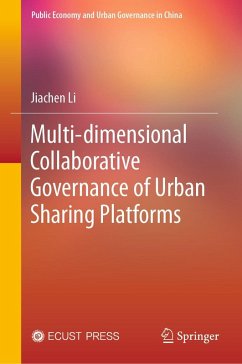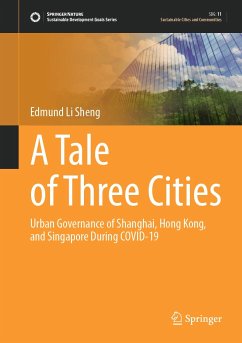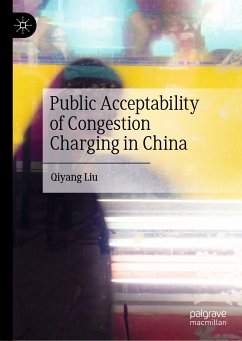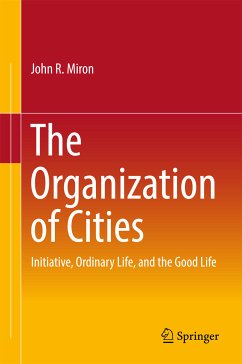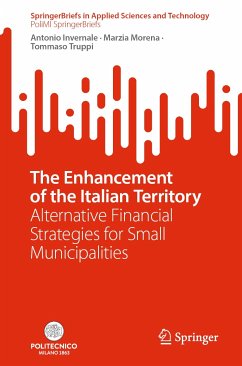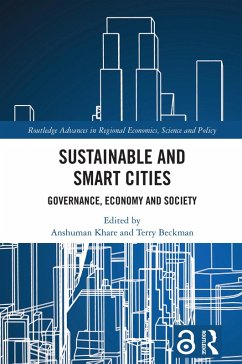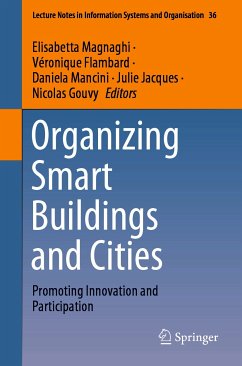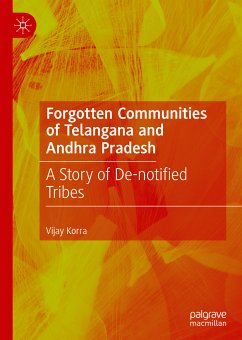
How Smart are Cities without Adequate Finances? (eBook, PDF)
A Comparative Analysis in South Asia
Versandkostenfrei!
Sofort per Download lieferbar
40,95 €
inkl. MwSt.
Weitere Ausgaben:

PAYBACK Punkte
20 °P sammeln!
This book compares urban finances in cities located in two different South Asian countries and assesses their fiscal health. It uses simulation to estimate the required augmentation in financial resources by the urban local bodies (ULBs) to reach a level of city development that is significantly better compared to existing levels. The book provides a systematic analysis of the fiscal health of two city corporations in Bangladesh, viz. Dhaka North City Corporation (DNCC) and Dhaka South City Corporation (DSCC); and one city corporation in the Indian state of West Bengal viz. Kolkata Municipal C...
This book compares urban finances in cities located in two different South Asian countries and assesses their fiscal health. It uses simulation to estimate the required augmentation in financial resources by the urban local bodies (ULBs) to reach a level of city development that is significantly better compared to existing levels. The book provides a systematic analysis of the fiscal health of two city corporations in Bangladesh, viz. Dhaka North City Corporation (DNCC) and Dhaka South City Corporation (DSCC); and one city corporation in the Indian state of West Bengal viz. Kolkata Municipal Corporation (KMC). The choice of city corporations was based on the shared history and the similarity of heritage, culture, topography and socio-economic conditions. Both DNCC and DSCC as well as the KMC have a high population density, which puts immense pressure on the service delivery provided by these corporations of basic services such as water supply, sanitation facilities, street lighting, drainage and sewerage and waste disposal. This is compounded by poor fiscal health of the ULBs.
Using primary data collected through surveys and personal interviews and information obtained from official documents, the book estimates fiscal gaps of the ULBs and undertakes simple simulations to estimate potential revenue enhancements and expenditure requirements to deliver services at the internationally acceptable standards. It highlights under-exploited sources of revenue which can be better realized and also identifies untapped revenue sources that can be easily introduced, in order to significantly enhance city revenues. The book is an excellent resource not only for researchers studying this topic, but also for policy makers and urban planners, particularly those from developing countries having to deal with burgeoning cities with high migrant population density.
Using primary data collected through surveys and personal interviews and information obtained from official documents, the book estimates fiscal gaps of the ULBs and undertakes simple simulations to estimate potential revenue enhancements and expenditure requirements to deliver services at the internationally acceptable standards. It highlights under-exploited sources of revenue which can be better realized and also identifies untapped revenue sources that can be easily introduced, in order to significantly enhance city revenues. The book is an excellent resource not only for researchers studying this topic, but also for policy makers and urban planners, particularly those from developing countries having to deal with burgeoning cities with high migrant population density.
Dieser Download kann aus rechtlichen Gründen nur mit Rechnungsadresse in A, B, BG, CY, CZ, D, DK, EW, E, FIN, F, GR, HR, H, IRL, I, LT, L, LR, M, NL, PL, P, R, S, SLO, SK ausgeliefert werden.



